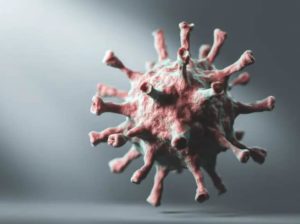People usually thing of malnutrition as a problem of hunger but in most of the world it is probably a result of a poor-quality diet.
Malnutrition means that the body lacks one or more categories of the things that it needs to function well. There are several deficiencies which might result in hair loss including zinc or iron deficiencies. A lack of vitamins A, C, D and E can also be a problem.
Finally, people who go on a hard diet can sometimes starve their bodies of calories or proteins which hair cells need to produce more hair. Hair follicles use lots of energy and are producing hair constantly, so if the body does not have enough of either, they are one of the first things to shut down.
Hormone imbalance is a common cause of hair loss in both men and women. The precise interplay of hormones and male and female hair loss is not perfectly understood.
Many people believe that balding men have too much testosterone. The common belief is that this imbalance causes male pattern baldness.
This is a great oversimplification. There is a connection between high testosterone levels and male pattern baldness, but the hair loss not necessarily to do with the testosterone itself. It could be a problem with other enzymes which fail to process testosterone correctly.
Alternatively, the hair follicles might be over-sensitive to testosterone. This is often a result of hereditary hair loss conditions.
Hormone issues can also cause female pattern baldness. Women also have testosterone in their bodies, and although it is at a lower level than for men, they also have lower levels of testosterone-processing enzymes.
Chronic stress makes the body release hormones such as cortisol or adrenaline into the blood. THIS can be useful in the short term, but long term has damaging effects on your body’s essential systems.
If there is too much stress over a long period of time, the body keeps producing the hormones and gets tired, run down and eventually exhausted. Hair follicles are one of the first things to shut down.
A sudden episode of acute emotional or psychological stress can trigger a massive release of the hormone cortisol into the blood. This can switch large numbers of hair follicles into dormancy. The result is hair thinning or patches of the hair falling out. The condition is called telogen effluvium.
There are several parasitic fungi which grow on the skin and can make hair fall out.
The most common type of hair loss-causing fungus is ringworm. Despite its name it is a fungus; or rather one of several fungi which can cause the condition.
In fact, ringworm is the same condition as athlete’s foot, just in a different location. As it grows in patches ringworm can cause patchy hair loss in that area.
Hair falls out as well due to other types of skin infection such as seborrheic dermatitis if they occur on the scalp. Dealing with the infection will allow the hair to grow back.
Many types of medication can cause hair loss. Most famously, chemotherapy treatment can cause dramatic hair loss. Doctors should discuss this with patients before treatment starts.
Hair styles that continually pull on your hair can eventually lead to hair loss. This is called traction alopecia.
Hair extensions that pull on the hair may also have the same effect. Finally, people who wear hair rollers in bed sometimes suffer from their hair falling out.
It may not be immediately obvious what the cause is for hair loss. Patients should see a doctor if they experience a sudden and large amount of hair loss. Sudden bald spots are usually a sign that something is not right.
Aside from this, any hair loss that is associated with pain, inflammation or itchiness should immediately be looked at by a doctor. Тhis is also the case if the hair loss is experienced with other symptoms of illness.
Ultimately, hair loss sufferers benefit from medical intervention if the hair loss damages their self-esteem or happiness. For many of the above causes of hair shedding, removing the cause will make the hair grow back. Often this growth phase will be visible quickly. Growing hair can restore self confidence in the patient.
Other hair loss is more permanent, especially those to do with genetics and hormones. Another example of permanent hair loss is the rare condition cicatricial alopecia, or scarring hair loss. This can be especially damaging to wellbeing.




